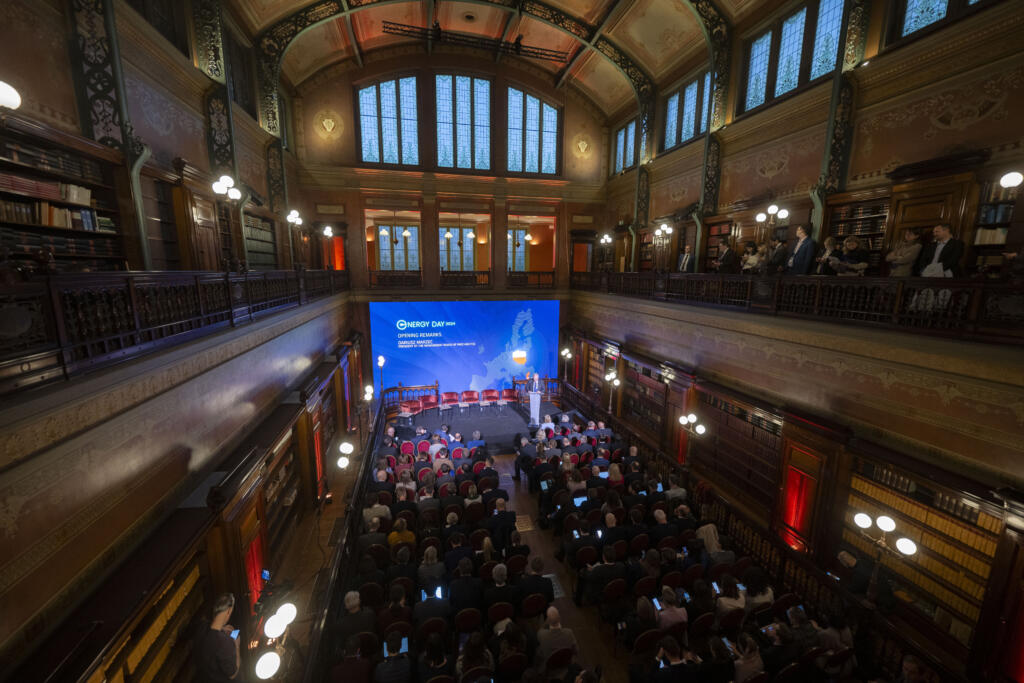The PKEE Energy Day 2024 event, organised by the Polish Electricity Association, took place in Brussels on 9th December. The meeting was participated by energy sector leaders, EU institutions’ representatives, experts and decision-makers who discussed Europe’s energy transition challenges and opportunities in light of the upcoming Polish Presidency of the EU Council.
Energy transition and EU priorities
In the opening speech, PKEE and PGE President, Dariusz Marzec, emphasised that ‘this is an exceptional moment for us as we are on the brink of new European Commission’s work agenda and just before the Polish Presidency of the EU Council’. He said that energy transition not only means reaching climate goals but also ensuring competitive economy and benefits for the citizens. ‘The Polish transition is in progress, we have ambitious plans related to offshore wind farms, investments are made in grid enhancement and energy storage to secure energy supplies for all consumers’, he added.
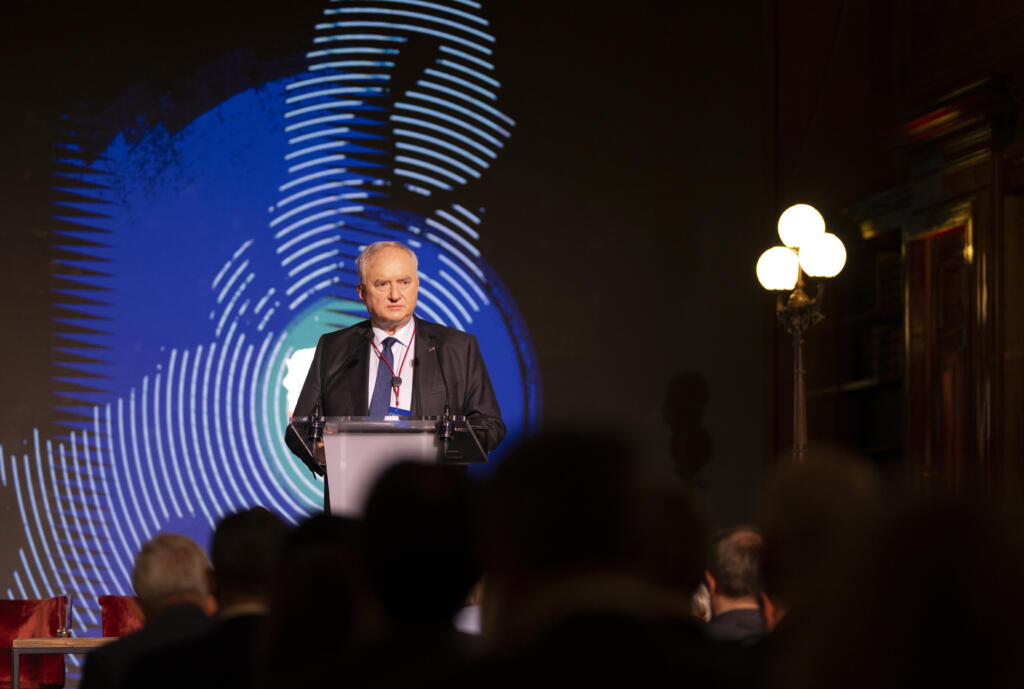
The Minister of Climate and Environment, Paulina Hennig-Kloska, admitted that a time of great challenges is ahead of us, and Poland takes the EU leadership in tough times of war in Ukraine, migration pressure and the necessity of strengthening the European economy. – ‘The Polish presidency will be crucial for implementing energy security supporting solutions and ambitious climate goals’, said the Minister.
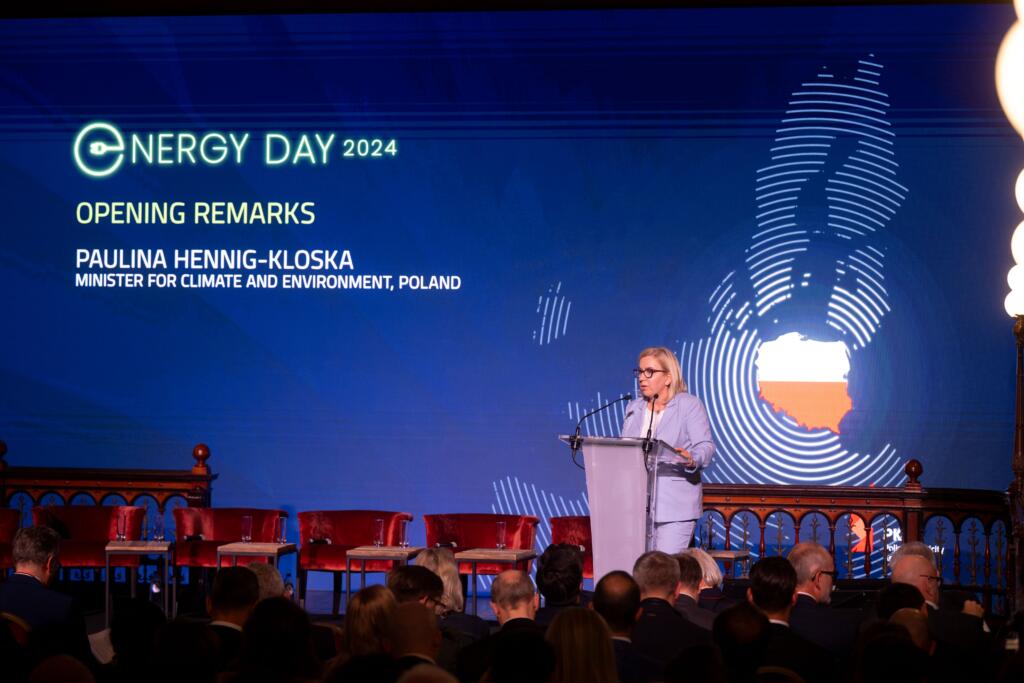
On the other hand, the Minister of Industry, Marzena Czarnecka, addressed the issues related to strengthening the position of European industry. ‘It is with great pleasure that we accept Draghi’s report and the announcement of the Clean Industrial Deal. Competitiveness is utterly important, and it will surely be at the top of Polish presidency’s agenda’, she summarised.
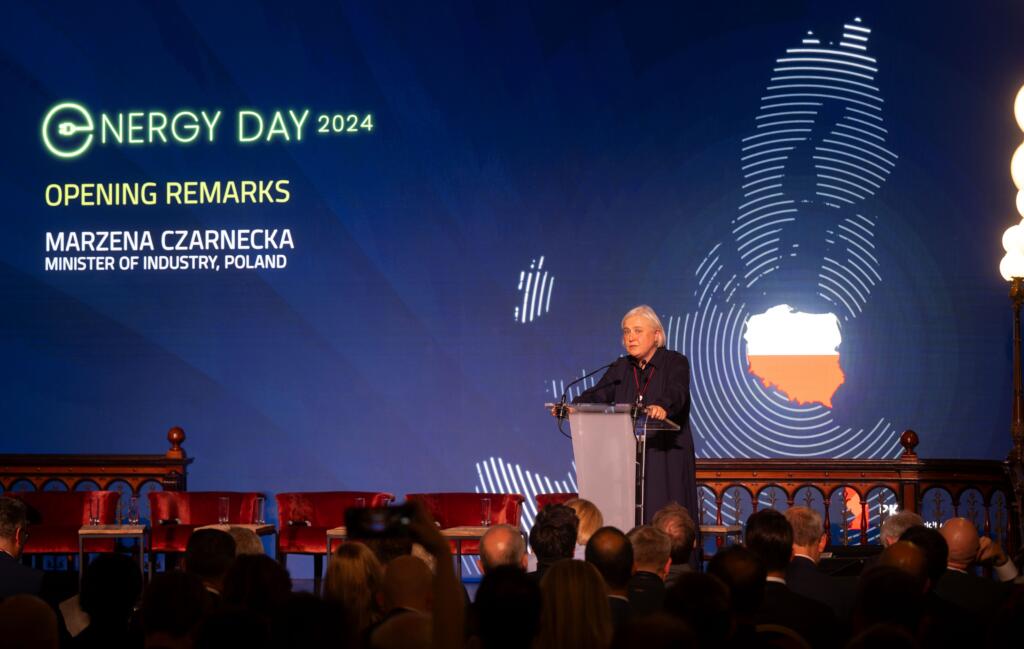
The Director General for Energy of the European Commission, Ditte Juul Jorgensen, pointed out that in the light of war in Ukraine the Polish presidency will play a significant role. ‘The European Commission will collaborate with Poland to ensure the security of supplies and a fair transition of EU member states’, she added.
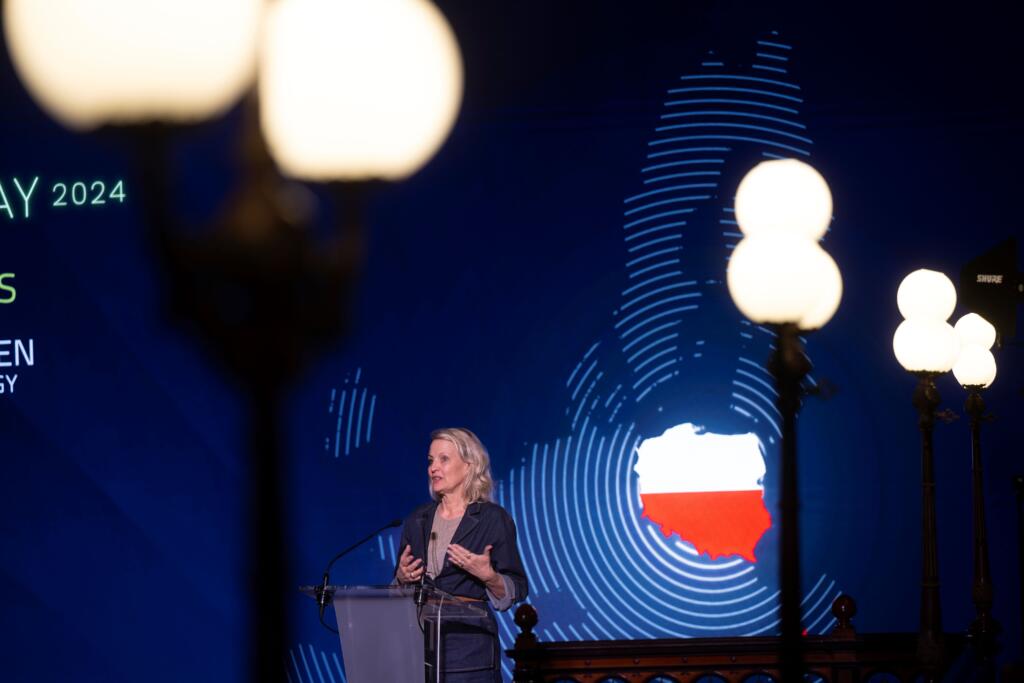
The Member of the European Parliament and the Chairman of the ITRE Committee, Borys Budka, assured that the ITRE Committee is ready to work on regulations which facilitate a fair transition. ‘I am glad to see here so many energy sector experts. I hope that today’s discussions will help develop an appropriate energy policy’, he emphasised.
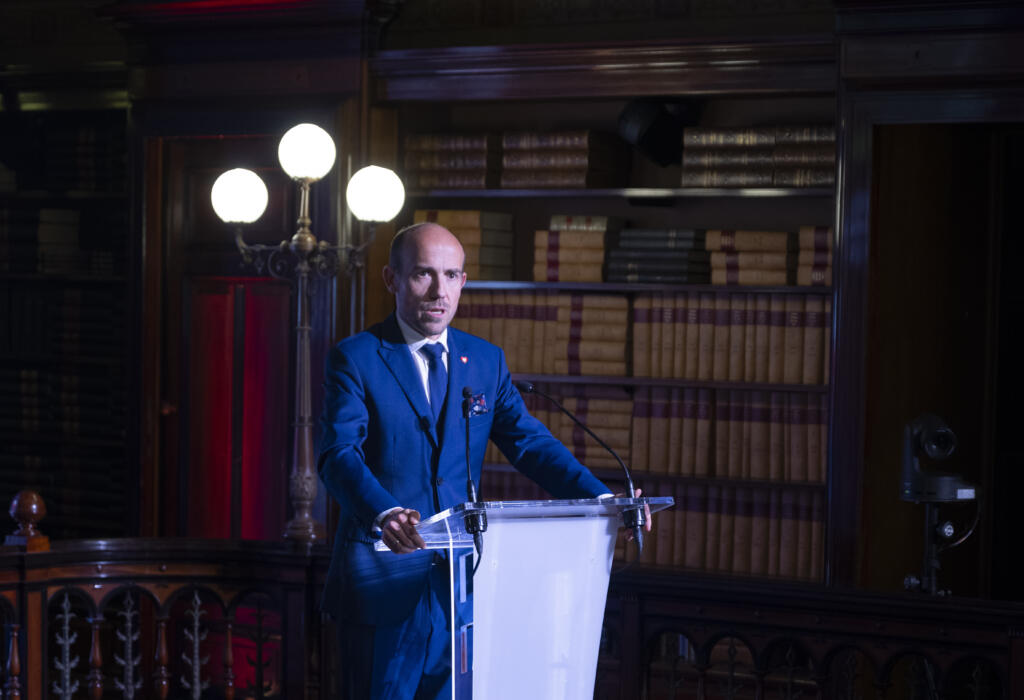
On the other hand, Nicola Pochettino, the European Investment Bank Director, admitted that it is crucial to ensure that no one is left behind in the transition process. ‘For Europe to compete with other regions, we need to support innovation and develop projects that will be beneficial to the environment as well as lead to lower energy prices’, said Nicola.
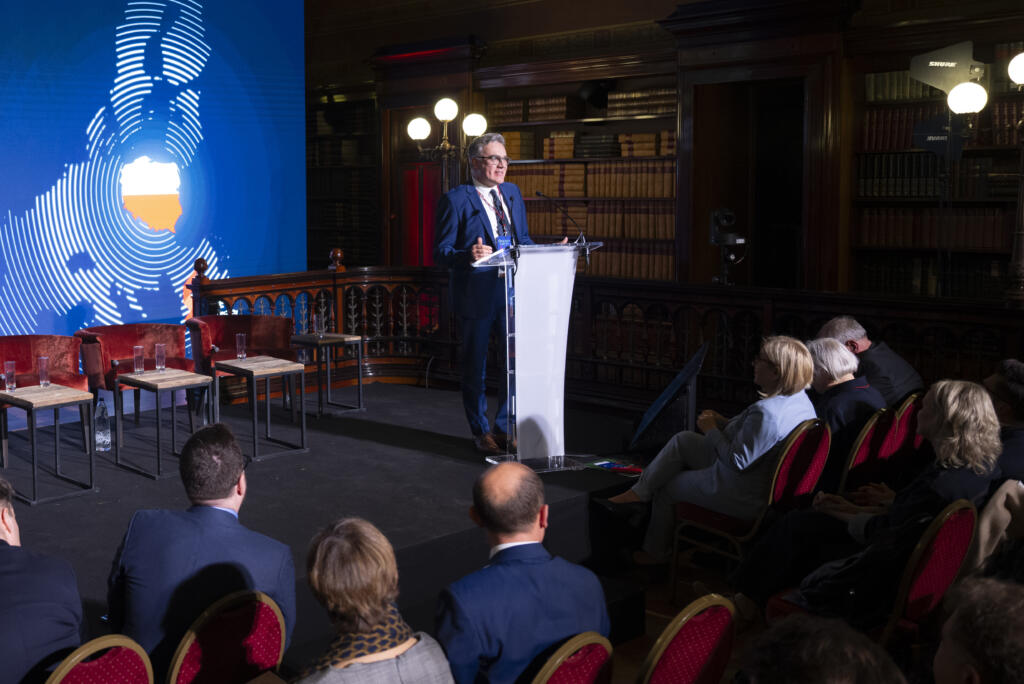
Why Europe needs a New Industry Masterplan?
During his speech entitled ‘Why Europe needs a New Industry Masterplan’, Fatih Birol, Executive Director of the International Energy Agency, indicated three mistakes made by the European Union 20 years ago, the consequences of which the community is still struggling with today. Among others, Birol pointed out the Russian gas supplies, the industry dependent on the fuel, resigning from nuclear power development and lack of expansion of the photovoltaics-related industry. The IEA Head concluded that there is still hope. ‘Europe has a chance of achieving a lot, but only if it remains united. The EU should focus on maintaining the current industry despite various difficulties. Then it should prepare for the next step which will allow its economy to start a new chapter based on clean technologies. I believe that Europe will overcome adversity’, he concluded.
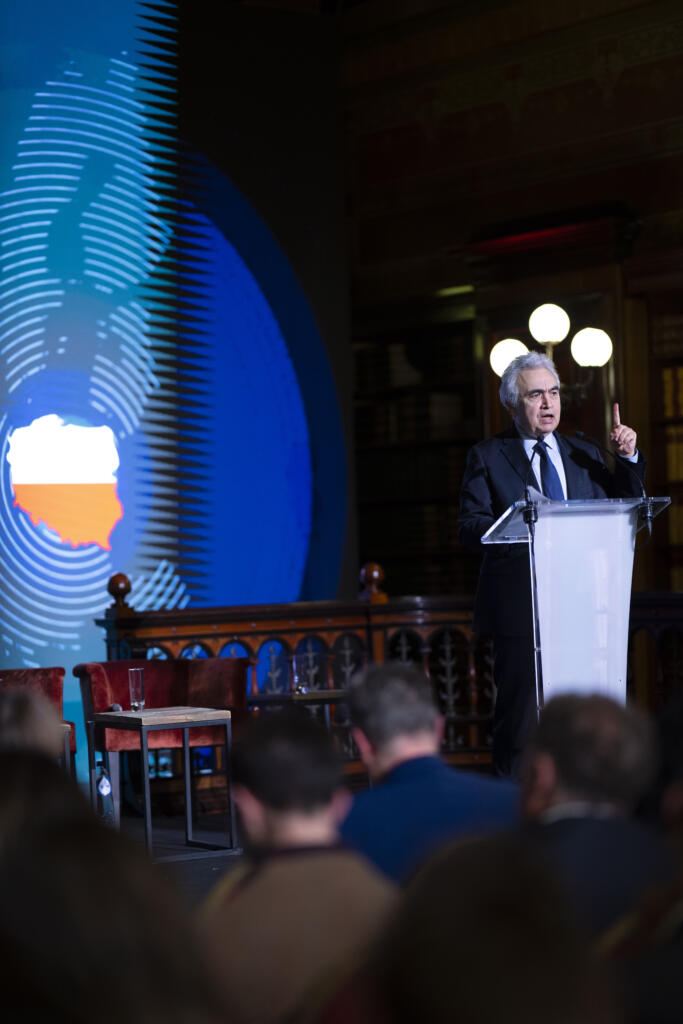
Clean Industrial Deal and competitiveness
During the Clean Industrial Deal debate, the Minister of State Assets, Jakub Jaworowski, pointed out the priorities related to improving competitiveness of the European economy. ‘The energy transition must involve low clean energy costs and competitive prices for the industry, in particular for small and medium-sized enterprises. ‘We expect specific activities as part of the Clean Industrial Deal which will allow Europe to remain competitive’, said the Minister. Referring to Minister Jaworowski’s words, The Member of the European Parliament, Radan Kanev, added that a strategic decision on whether the EU’s industry plan should target the so-called clean industry, or the entire EU industry has to be made in the light of the Clean Industrial Deal work agenda. However, the Eurelectric Vice-President and the PPC CEO, Georgios Stassis, reminded that Draghi’s report highlighted the problem of over-regulation, therefore, clear regulations are needed.
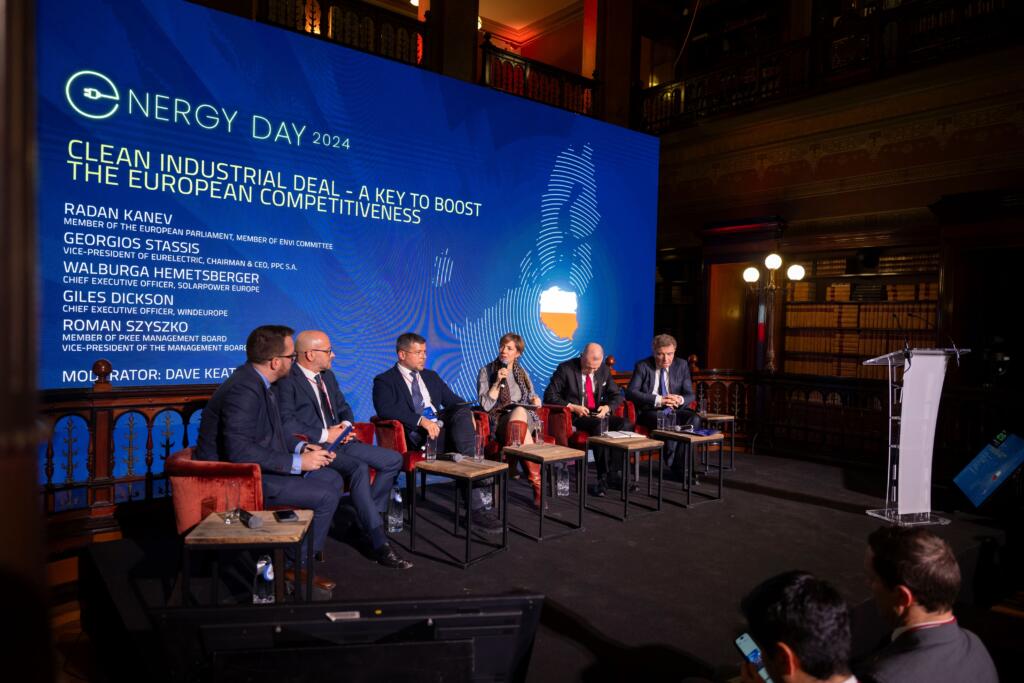
On the other hand, the CEO of SolarPower Europe, Walburga Hemetsberger, emphasised the need for adapting the power system to accumulate more electricity from solar and wind energy, which translates to necessary grid investments. That is when Giles Dickson, CEO of WindEurope, referred to the price competitiveness between European products and those from other regions. ‘The number of wind farm component factories grows, new factories are erected also in Poland, however, the price competitiveness remains an issue. The Clean Industrial Deal should support them’, he added.
The debate participant, Member of PKEE Management Board, Vice-President of Energa S.A., Roman Szyszko, reminded that the continuation of energy transition increases the importance of necessary regulatory changes and energy generation support mechanisms. ‘Particular attention in this regard should be paid to the role of electricity distribution networks which need to be upgraded and developed throughout Europe in order to prevent them from becoming an obstacle to increasing the pace of economic growth. Ensuring flexible operation of power systems and security of energy supply with the expected further growth of RES potential is a challenge that will require major investments estimated at EUR 425 billion by 2032 in Europe alone. We hope that the EU will implement effective mechanisms and financial solutions facilitating the creation of key energy sector elements of the future, meaning renewable sources and balancing units’, said Vice-President Szyszko.
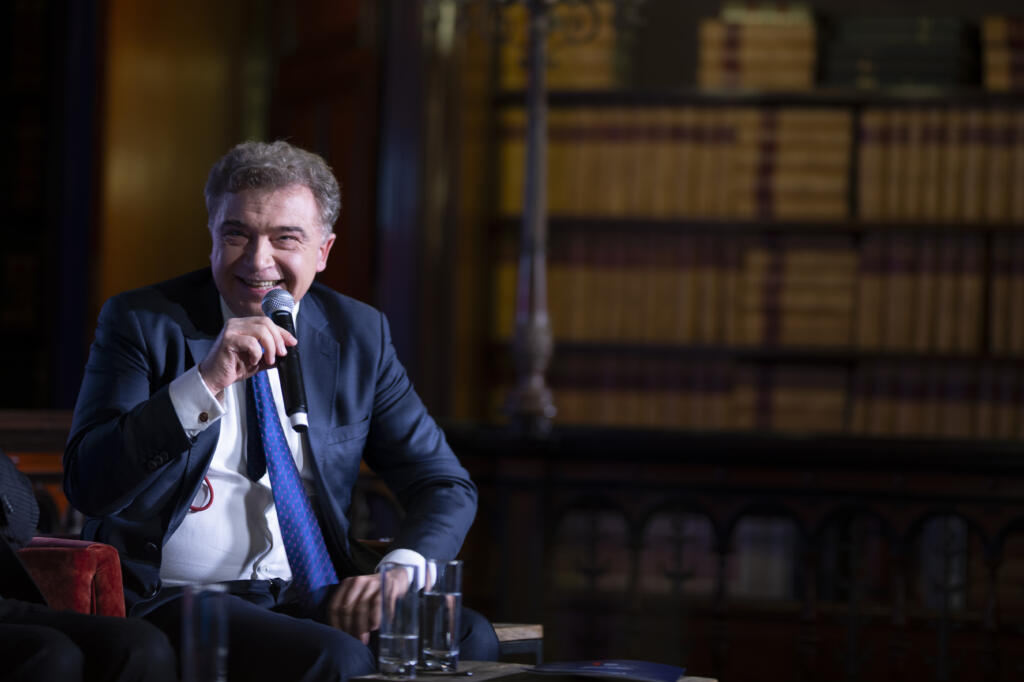
Energy storage as a key to RES development success
During the debate on energy storage, PSE CEO, Grzegorz Onichimowski, pointed out the need for developing technologies in this area. ‘Small energy storage systems of prosumers will not be sufficient. In order to stabilise the system, we need large energy storage systems, gas power plants and technologies such as power-to-heat. We must introduce clear support mechanisms as an incentive for investors to build such capacities’, he assured. However, Bruce Douglas, CEO of Global Renewables Alliance, added to the previous statement that the development of storage, in particular the development of long-term storage and power systems, is the key solution to further dynamic development of renewable energy sources. On the other hand, Guillermo Antonio Rios Pavia, research associate at Aurora Energy Research, reminded that the EU's energy market reform shows the importance of energy system flexibility, and the battery storage systems are the answer to the related challenges.

The Vice-President of the PKEE Management Board, CEO of Tauron, Grzegorz Lot added that energy storage systems, just as any system component, have to be perceived as a tool for building a secure, stable and effective power system. ‘That is why we diversify the storage technologies used. As TAURON, we not only develop lithium-ion battery-based solutions, but also analyse the possibility of building a 700 MW pumped storage power station’, he clarified. CEO Lot added that the flexibility services will be the key element of effective energy transition. ‘However, the capacity market for storage cannot be the sole tool to stimulate the development of new capacity. We ned clear legislation and dedicated support mechanisms. RES without properly developed storage capacity does not bring the expected results. The rest should be up to the market’, said Grzegorz Lot.
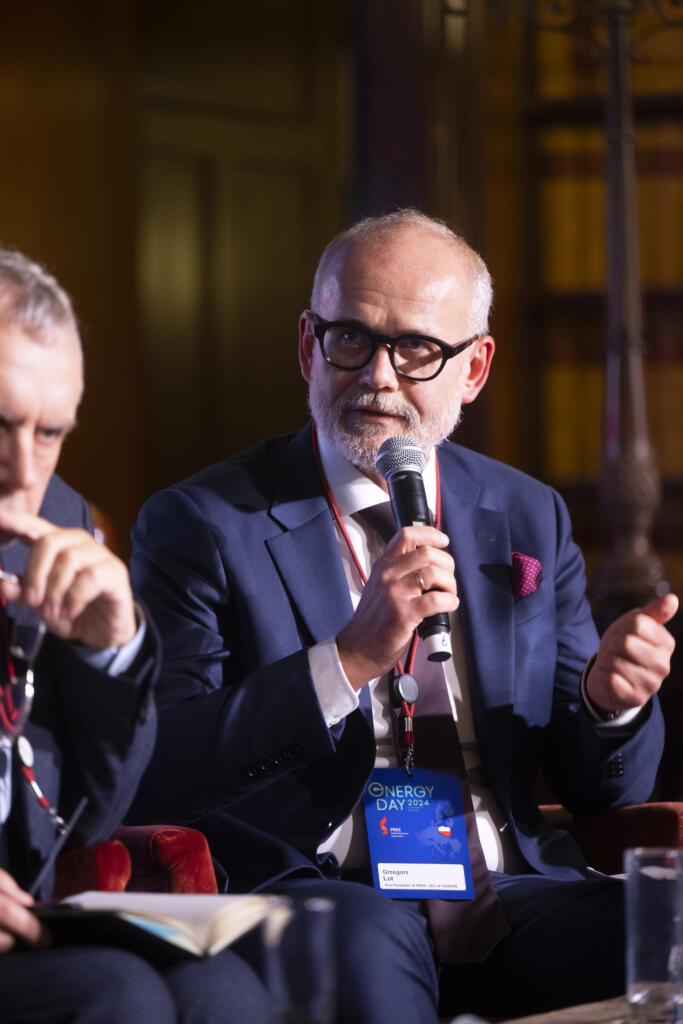
Man at the heart of transition
In the event closing speech, Grzegorz Kinelski, the CEO of ENEA, Vice-President of PKEE, emphasised that currently the key is consumer’s perspective, who needs secure and affordable energy. ‘In order to achieve this, we must continue developing the energy mix by investing both in RES as well as gas technologies and energy storage. We still need support mechanisms such as the capacity market or contracts for difference to avoid a capacity gap’, he added.
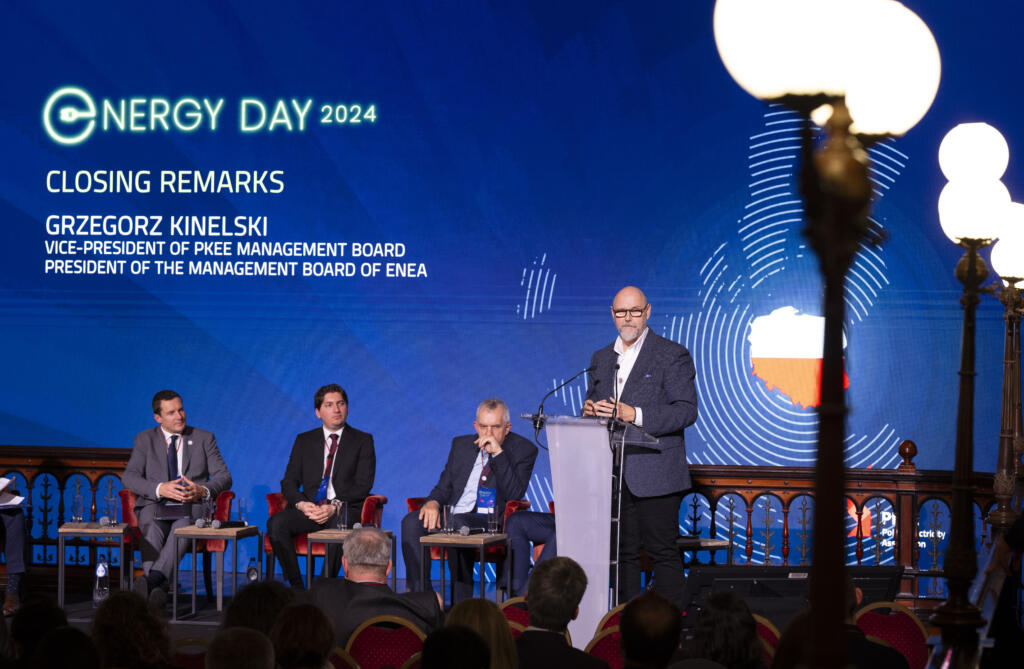
Strona wydarzenia / Event website
Video:
PKEE Energy Day 2024 – opening
PKEE Energy Day 2024 – part 10
PKEE Energy Day 2024 – part 11
PKEE Energy Day 2024 – part 12

